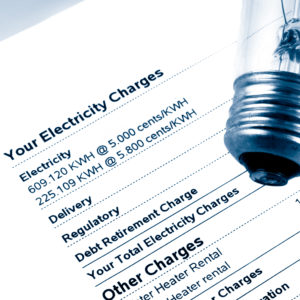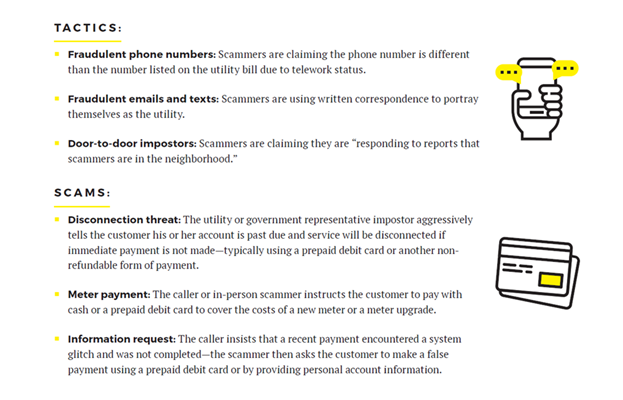As essential service providers, utility companies are committed to educating the customers we serve about the latest scam tactics being used to target them.
Sadly, while many types of scams occurred before the pandemic, scammers now are trying to take advantage of the COVID-19 crisis and the financial challenges that many customers are facing.
That is why Utilities United Against Scams (UUAS) and its member organizations are recognizing the fifth annual Utility Scam Awareness Day on November 18, to help educate customers about the risks that exist today.
Here are common pandemic-related scams and tips for customers to protect themselves:
— Scammers often threaten immediate service disconnections. They ask for personal information or demand payments to prevent service interruptions.
— Scammers have been taking advantage of increased online activities since the pandemic. They are asking for payments over the phone by using digital payment apps, bitcoin, or direct transactions with banking institutions.
— Scammers are using tactics to prey on households with tight budgets. Scammers will inform customers that they have overpaid utility bills and are due a refund, but that they need their banking information in order to process the refund. Or they may claim that immediate bill payment will result in a discount or that a charitable donation can be made in exchange for bill payments.
— Scammers also are posing as utility employees by saying the number showing on the caller ID is not the utility’s phone number because they are working from home due to COVID-19 policies.
Utilities will never call customers to demand immediate payment, and they will never ask for personal information over the phone.
Utilities also will never ask customers to buy a prepaid card or to use a third-party payment app to pay bills in order to prevent immediate disconnections.
If you receive an email, phone call, text, or knock at the door, please keep the following tips in mind:
— Slow down. Scammers typically try to rush customers and will ask for personal information and immediate payment.
— Verify. Scammers often pose as utility company employees. If they are in-person, always ask for a company ID. If the scammer is on the phone, make sure they can verify they are with the utility. If you are unsure, hang up, close the door, or ignore the email and instead contact the utility directly by using the information on your most recent bill.
— Stop before you act. Think about the information the caller or potential scammer is asking of you. If it seems unsafe or incorrect, rethink the situation and ask questions.
No one knows when or how a scammer will appear, so it is important for utility customers to understand the types of threats that are out there and to remember that we all could be targeted at any time.
The pandemic has created unique situations for everyone, and it is easy to be caught off guard. Utilities and customers must continue to work together to raise awareness and must be vigilant of the everyday tactics being used.
Together, we can stop scams.


